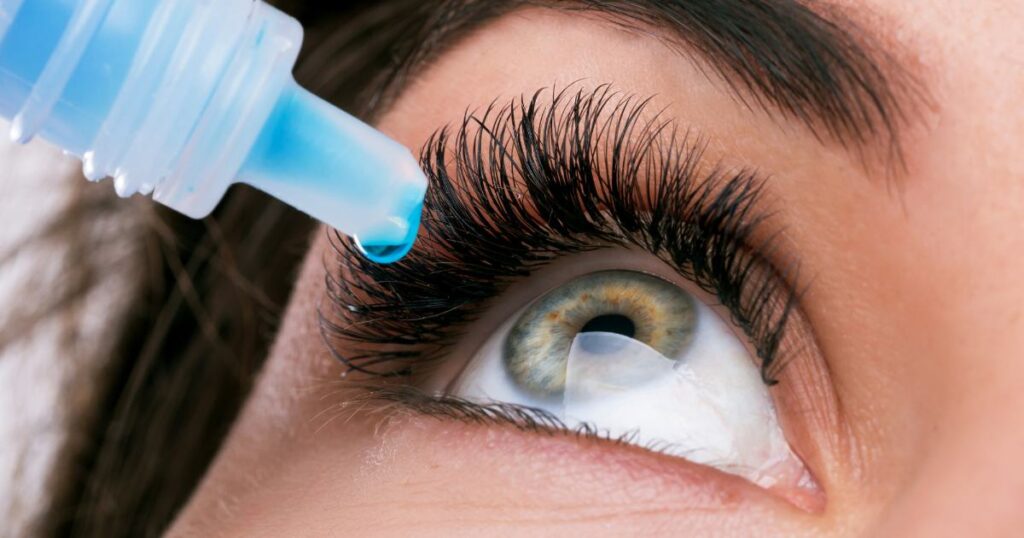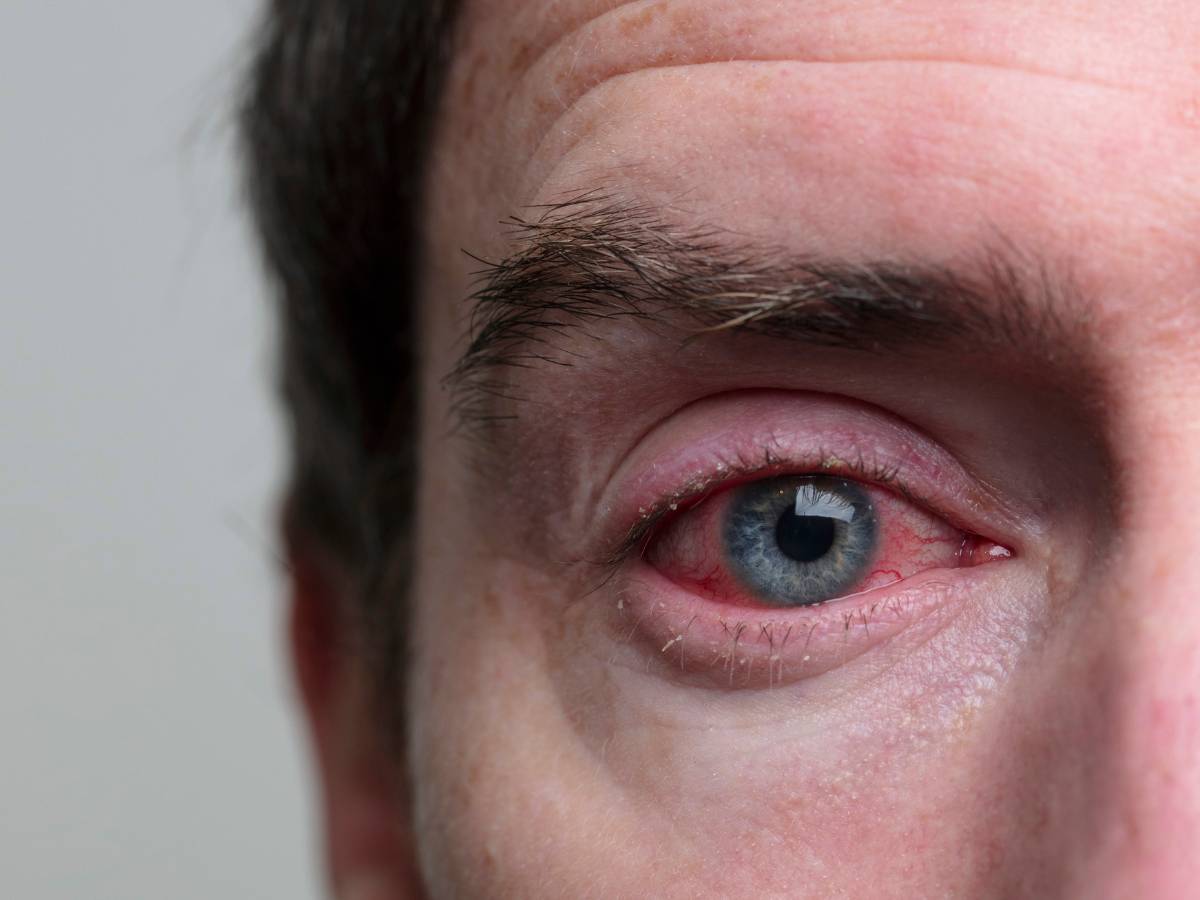Blepharitis, an inflammatory eyelid condition, often intersects with various lifestyle elements, with sleep patterns being a notable factor. we’ll explore how sleep can benefit blepharitis and provide practical tips for improving your sleep quality.

The Influence of Sleep on Blepharitis:
Adequate sleep is integral for holistic health, including optimal eye function. However, inadequate or irregular sleep patterns can exacerbate symptoms of blepharitis. During sleep, the eyes undergo rejuvenation and repair processes, aiding in maintaining eye health. Insufficient rest disrupts this restorative phase, potentially intensifying the inflammation in the eyelids associated with blepharitis. Thus, irregular sleep might hinder the natural healing mechanisms, leading to increased discomfort and aggravation of blepharitis symptoms, emphasizing the critical relationship between restful sleep and managing eye conditions like blepharitis.
Overnight Improvement Expectations:
Overnight resolutions are rare in managing blepharitis; this condition doesn’t vanish swiftly. Its effective management necessitates continual care and adherence to treatment protocols. While a single night’s rest won’t eliminate it entirely, consistent hygiene practices and following prescribed treatments gradually contribute to noticeable improvement over time. Patience and commitment to a sustained care regimen are key for managing and gradually alleviating the symptoms of blepharitis.
Soothing Strategies for Blepharitis:
- Eyelid Hygiene: Regularly cleansing eyelids with a warm, damp cloth alleviates discomfort and reduces inflammation.
- Warm Compresses: Application over closed eyes unclogs blocked glands, easing symptoms.
- Eye Care Practices: Using prescribed eye drops or ointments aids in managing blepharitis.
- Healthy Habits: A nutritious diet, hydration, and reduced screen time complement treatment.
Blepharitis and Sleep Quality:

Although blepharitis doesn’t directly cause sleepiness, its symptoms can disturb sleep quality, resulting in daytime drowsiness or fatigue in specific individuals. The discomfort and inflammation linked to blepharitis, including eye itching, irritation, or a gritty sensation, may hinder the ability to fall asleep or maintain uninterrupted sleep throughout the night.
Continuous rubbing of the affected eyes due to discomfort may further exacerbate this sleep disruption. Consequently, this compromised sleep pattern could result in daytime drowsiness, reduced alertness, and increased fatigue. Though blepharitis may not directly cause sleepiness, its impact on sleep quality highlights the importance of managing its symptoms to ensure better rest and overall well-being
Holistic Management Approach:
Understanding the intricate link between sleep and blepharitis emphasizes the necessity of a comprehensive approach. While sleep alone may not cure blepharitis, prioritizing adequate rest alongside proper eyelid care and treatments significantly improves symptoms over time.
The Role of Hydration in Blepharitis:
Hydration plays a pivotal role in managing blepharitis. Proper hydration ensures that the body functions optimally, including the health of the eyes and their surrounding tissues. For individuals with blepharitis, maintaining adequate hydration levels can aid in minimizing dryness and irritation in the eye area.
Dehydration can exacerbate dry eye symptoms, potentially worsening blepharitis discomfort. Increasing water intake helps in maintaining overall eye health by promoting tear production and preventing excessive dryness. Additionally, maintaining proper hydration levels complements other treatment strategies for blepharitis, such as eyelid hygiene and prescribed treatments. While hydration alone might not cure blepharitis, it significantly contributes to managing its symptoms and fostering better eye health.
Professional Guidance and Therapies:

Consulting an eye care specialist is crucial for tailored treatments. Therapies like intense pulsed light (IPL) or meibomian gland expression performed by professionals may aid in managing chronic blepharitis cases.
Prevention Measures:
- Maintain consistent hygiene practices, including regular eyelid cleaning routines.
- Avoid rubbing the eyes excessively to prevent irritation and inflammation.
- Utilize hypoallergenic eye products to minimize potential allergic reactions or irritants.
- Schedule routine eye examinations to detect early signs of blepharitis for timely and effective intervention.
Lifestyle Adjustments:
A lifestyle overhaul comprising stress management techniques, adequate sleep hygiene, and a balanced diet rich in omega-3 fatty acids supports overall eye health and blepharitis management.
Final Thoughts:
Understanding the multifaceted interplay between sleep, hygiene, and professional care is pivotal for effective blepharitis management. While sleep contributes significantly to symptom alleviation, a holistic approach involving various aspects ensures enhanced eye health and comfort in managing blepharitis.








